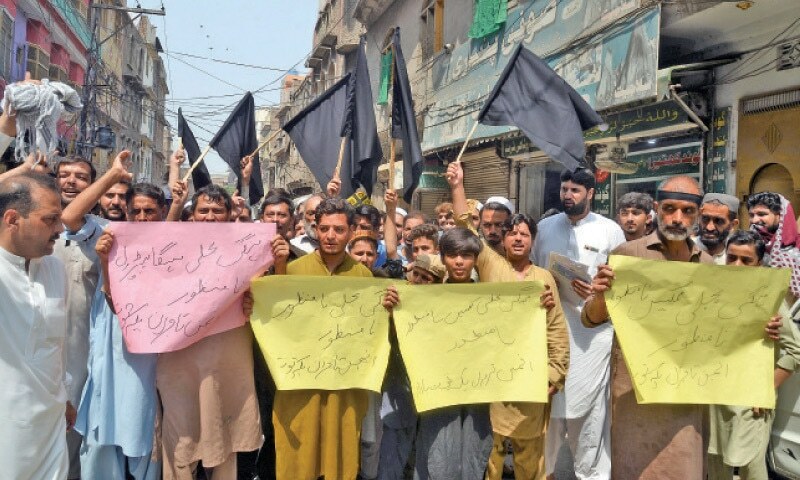Pakistani Traders
In a coordinated protest against recent tax reforms and rising electricity bills, traders across Pakistan are observing a nationwide strike on Wednesday, receiving support from various traders’ associations and political parties.
The strike has garnered backing from several key political parties, including Jamiat Ulema-e-Islam Fazl (JUI-F), Pakistan Tehreek-e-Insaf (PTI), Jamaat-e-Islami (JI), and Awami National Party (ANP). These parties have joined forces with traders to express their discontent with the government’s fiscal policies.
The Karachi chapter of Anjuman-e-Tajiran had announced a complete shutdown of businesses in the city, with President Javed Shams criticizing the political leadership for failing the business community.
Shams emphasized that the rise in taxes and electricity bills is unacceptable and that the so-called “Trader Friendly Scheme” is insufficient. He asserted that today’s strike, involving both small and large cities across Sindh, signifies a rejection of these fiscal measures.
Similarly, the Karachi Electronics Dealers Association (KEDA) has lent its support to the strike. KEDA President Mohammad Rizwan stated that the strike spans from Karachi to Khyber and warned that the strike might continue if the issues remain unresolved.
In Punjab, the Central Traders Association of Pakistan has led the strike, causing the closure of business centers across cities such as Vehari. Markets on Club Road, Jinnah Road, Luddun Road, Rail Bazaar, Choori Bazar, and Multan Road are entirely shut. The association’s president denounced the “cruel taxes” imposed on traders.
In Gujranwala, all major markets, including the Cloth Market, Steel Market, Sanitary Market, and those in Satellite Town, have been closed. The city’s mobile phone association has also supported the strike.
Khyber Pakhtunkhwa’s Peshawar is witnessing a similar response, with traders’ organizations observing the strike. Markets such as Sadar Bazaar, Shafi Market, Qisa Khwani, and Khyber Bazaar are shut, and protest camps have been set up in front of the closed markets.
In Dera Ismail Khan, traders are participating in a complete strike, closing all commercial centers in support of the traders’ association and the traders’ action committee.
Sindh cities, including Nawabshah and Tando Allahyar, are also affected, with both central commercial areas and smaller businesses adhering to the strike. Sindh Traders Association President Waqar Memon criticized the monthly tax, withholding tax, and professional tax as anti-business policies.
Markets in Punjab cities like Chichawatani are closed, with traders demanding a reversal of the “cruel” taxes and a reduction in electricity costs. Jamaat-e-Islami in Charsadda has also joined the strike, resulting in the closure of food shops and hotels.
This nationwide strike follows an earlier announcement by Jamaat-e-Islami to observe a shutter-down strike on August 28 to pressure the coalition government into providing relief.
This move came after the party postponed a planned 14-day sit-in on August 9, following successful negotiations with the government over high power tariffs and agreements with Independent Power Producers (IPPs) that have been criticized for leading to exorbitant electricity bills.










